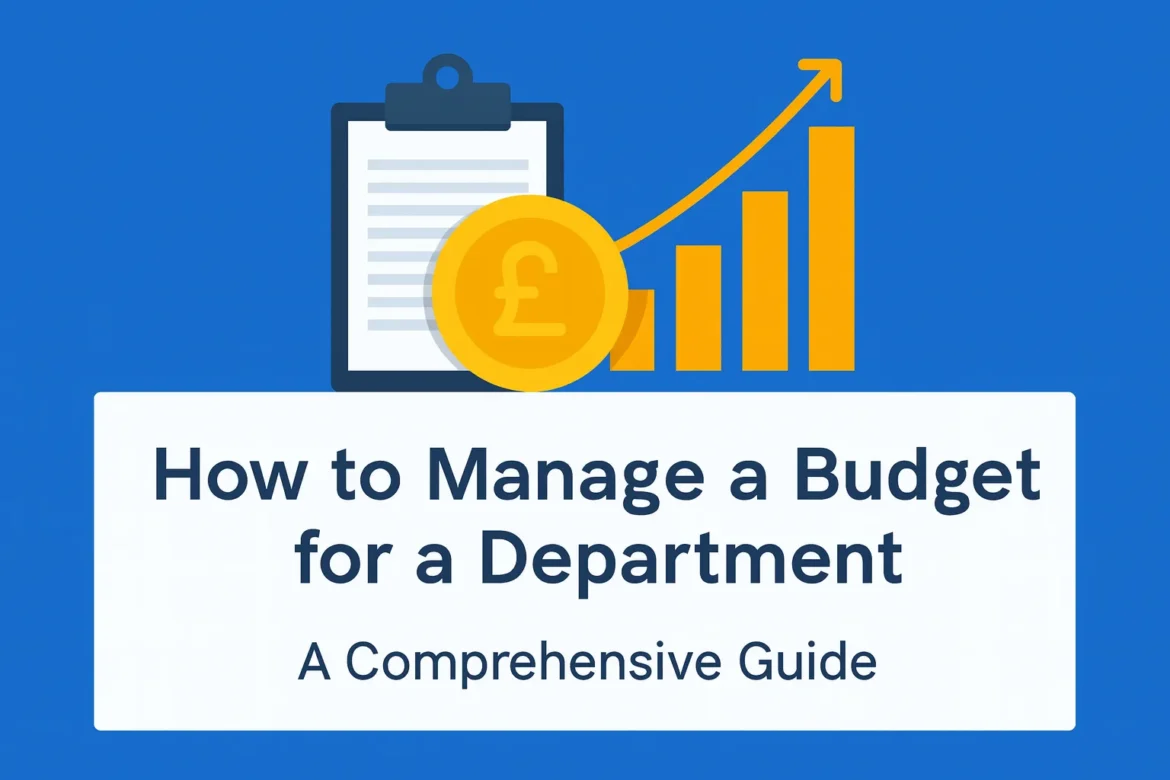Managing a budget for a department is a crucial skill that can significantly impact the overall success of an organization. A well-structured departmental budget not only allows for better resource allocation but also fosters accountability and transparency. In this comprehensive guide, we will explore how to manage a budget effectively, ensuring that your department meets its goals while staying within financial constraints.
Quick Summary
- Understand the importance of departmental budgeting.
- Follow a step-by-step guide to create and manage budgets.
- Avoid common budgeting mistakes for better financial outcomes.
What is a Departmental Budget?
A departmental budget is a financial plan that outlines the expected revenues and expenditures for a specific department within an organization. It serves as a roadmap for financial decision-making, helping department heads allocate resources efficiently to achieve their objectives. By detailing anticipated costs and income, a departmental budget provides a framework for monitoring financial performance throughout the fiscal period.
Why Departmental Budgeting is a Critical Skill
Effective departmental budgeting is essential for several reasons. Firstly, it enables departments to align their financial resources with strategic goals, ensuring that funds are directed toward priority initiatives. Secondly, it enhances accountability, as department leaders are responsible for managing their budgets and justifying expenditures. Lastly, a well-managed budget can improve overall organizational performance by optimizing resource utilization and minimizing waste.
The Step-by-Step Guide to Managing a Department Budget
Step 1: Understand Your Department’s Goals and Priorities
Before diving into the budgeting process, it’s vital to have a clear understanding of your department’s goals and priorities. Engage with team members and stakeholders to identify key objectives and initiatives that require funding. This collaborative approach ensures that the budget reflects the department’s strategic direction.
Step 2: Gather Historical Data and Project Future Needs
Analyzing historical financial data is crucial for creating an accurate budget. Review past expenditures and revenues to identify trends and patterns. Additionally, consider upcoming projects, seasonal fluctuations, and potential changes in staffing or resources to project future needs effectively.
Step 3: Classify Your Expenses
Categorizing expenses into fixed, variable, and discretionary costs can help streamline the budgeting process. Fixed costs, such as salaries and rent, remain constant, while variable costs fluctuate based on activity levels. Discretionary expenses, like training and development, can be adjusted based on available funds. This classification allows for better control and prioritization of spending.
Step 4: Build Your Budget Proposal
With a clear understanding of goals, historical data, and classified expenses, you can now build your budget proposal. Ensure that your proposal is realistic and aligns with the department’s priorities. Include justifications for each line item, highlighting how they contribute to achieving departmental objectives. Presenting a well-structured proposal increases the likelihood of approval from upper management.

Step 5: Monitor, Analyze, and Report
Once the budget is approved, the real work begins. Regularly monitor actual expenditures against the budgeted amounts to identify variances. Analyze the reasons behind any discrepancies and adjust your spending as necessary. Reporting on budget performance to stakeholders fosters transparency and accountability, ensuring everyone is informed about financial health.
Strategies for Effective Budget Management
In addition to the steps outlined above, consider implementing these strategies for effective budget management:
1. Utilize Budgeting Software: Leverage technology to streamline budgeting processes, track expenses, and generate reports.
2. Engage in Continuous Learning: Stay updated on best practices in budgeting and financial management through workshops and training.
3. Foster Open Communication: Encourage team members to share insights and concerns regarding budget management, promoting a culture of collaboration.
Common Budgeting Mistakes to Avoid
Avoiding common pitfalls can enhance your budgeting process:
1. Neglecting to Involve Stakeholders: Failing to engage team members can lead to unrealistic budgets.
2. Overlooking Contingency Planning: Not accounting for unexpected expenses can derail your budget.
3. Setting Unrealistic Goals: Ensure that budget targets are achievable to maintain morale and accountability.
Department vs. Company Budget: What’s the Difference?
While a departmental budget focuses on the financial needs of a specific department, a company budget encompasses the entire organization’s financial plan. The company budget integrates all departmental budgets, ensuring that resources are allocated in alignment with overall business objectives. Understanding this distinction is crucial for effective financial management at both levels.
Best Practices for Effective Departmental Budgeting
To ensure successful departmental budgeting, consider the following best practices:
– Regularly Review and Adjust Budgets: Financial situations can change; be prepared to adjust your budget as necessary.
– Set Clear Performance Metrics: Establish KPIs to measure budget effectiveness and departmental performance.
– Encourage Accountability: Hold team members responsible for their budgetary decisions to foster a culture of financial responsibility.
Comparison Table: Departmental Budgeting vs. Company Budgeting
| Aspect | Departmental Budgeting | Company Budgeting |
|---|---|---|
| Scope | Focused on specific department | Encompasses entire organization |
| Detail Level | More granular, specific expenses | Higher-level overview |
| Approval Process | Department head approval | Executive team or board approval |
| Flexibility | More adaptable to departmental needs | Generally more rigid |
| Reporting Frequency | Monthly or quarterly | Annually or bi-annually |
Conclusion
| Aspect | Departmental Budgeting | Company Budgeting |
|---|---|---|
| Scope | Focused on specific department | Encompasses entire organization |
| Detail Level | More granular, specific expenses | Higher-level overview |
| Approval Process | Department head approval | Executive team or board approval |
| Flexibility | More adaptable to departmental needs | Generally more rigid |
| Reporting Frequency | Monthly or quarterly | Annually or bi-annually |
Comparison of key aspects.
Managing a budget for a department is not just about numbers; it’s about strategic planning, accountability, and fostering a culture of financial responsibility. At BMC Training, we offer comprehensive courses designed to enhance your budgeting skills and empower you to lead your department to financial success. Join us today to unlock your potential and master the art of departmental budgeting!
Frequently Asked Questions (FAQ)


